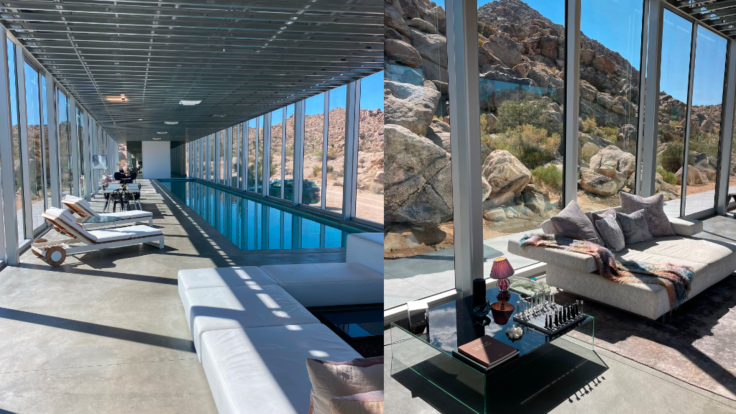
A TikTok influencer has claimed he was fined $10,000 after a single selfie posted inside the viral 'Invisible House' in Joshua Tree, California, was ruled to have breached a commercial-photography clause in his Airbnb-style rental contract.
The property's owners say the branded post constituted paid promotion, even though the guest insists the stay was for personal use.
What Happened
The Influencer Sean Davis booked the 5,500-square-foot mirrored glass mansion near Joshua Tree National Park for around $2,400 per night. He later claimed in a TikTok video that after a friend's girlfriend posted a selfie inside the property and tagged a brand on Instagram, the owners invoked a clause in the contract and fined him $10,000.
@seanmdavis We rented the invisible house in Joshua Tree for a photo shoot outside. We didn’t let them know we were taking some photos outside and got shook down for 10k over a selfie tagging a brand not even mine. Sleeping there is a the worst part. You can’t see out of the house at night but can see In perfectly. Worst part is it cracks like a sky scrapper all night and is so loud. #fyp #travel #invisiblehouse #palmsprings #joshuatree
♬ оригинальный звук - tenly
Davis said he believed the stay was for personal use and not a formal shoot. He maintains he did not conduct branded content inside the house, but the single tagged selfie was deemed 'commercial activity' by the hosts. The property, known for its mirrored façade and Instagram-ready architecture, has long been used by influencers and creators.
The Clause and the Dispute
According to Davis, the rental agreement includes a provision that restricts commercial photography or branded content unless it is separately arranged. He said that when the selfie was tagged with a brand, the hosts ruled it fell under that category.
The owners have not publicly responded, but the property's official site does advertise 'full multimedia production services' for filming and photography, suggesting such activity usually requires separate permits and fees.

In the same video, Davis listed other grievances from his stay: he described a lack of privacy at night because the mirrored walls became see-through, structural creaks and noises that disrupted sleep, and what he called 'hidden fees' in the fine print.
Why It Matters
The dispute highlights a growing tension between high-end rentals marketed for their Instagram appeal and the rules governing commercial use. Luxury properties like the Invisible House attract influencers, but owners often seek to control how their image is monetised.
For guests, the case is a warning to read rental contracts carefully. What may feel like harmless personal sharing can, under strict clauses, be interpreted as commercial use. For hosts, it reflects the challenge of balancing visibility and revenue with the protection of property rights.
Online, Davis's story has fuelled debate about what qualifies as 'commercial' content. Legal experts note that the definition varies depending on local law, contract wording and usage. While some argue that tagging a brand in a selfie should not trigger penalties, others say it blurs the line between personal and promotional content.
What Comes Next
Davis has said he intends to dispute the $10,000 charge, though it is not confirmed whether he has taken legal action. Airbnb has not commented on the matter.
For now, the episode is being shared widely on TikTok and Instagram as a cautionary tale. Some influencers say they will avoid high-profile 'Instagram houses' altogether, while others suggest contracts should be negotiated upfront.
The outcome may influence how rental platforms handle fine print around social media content and how much a selfie can really cost.







